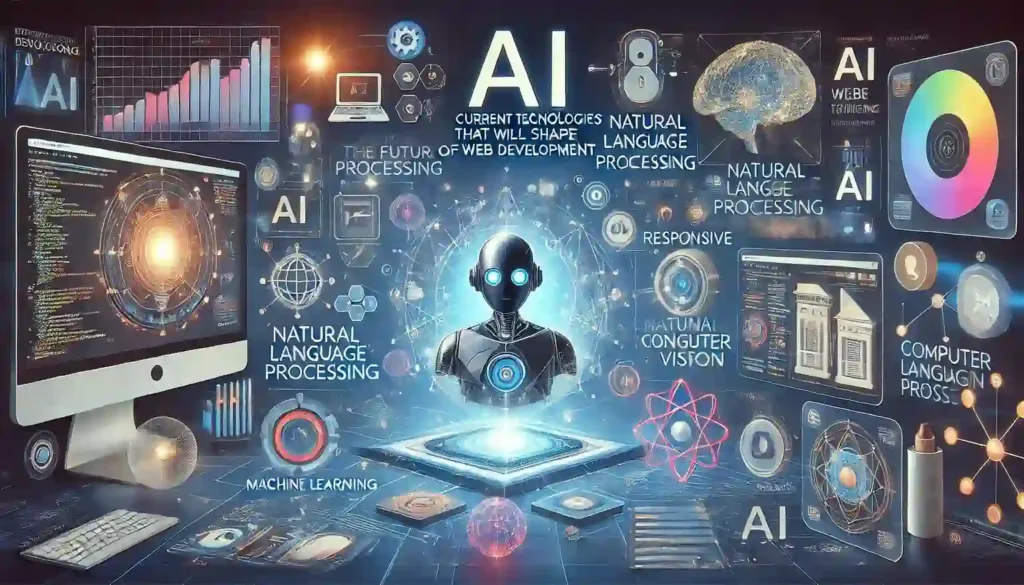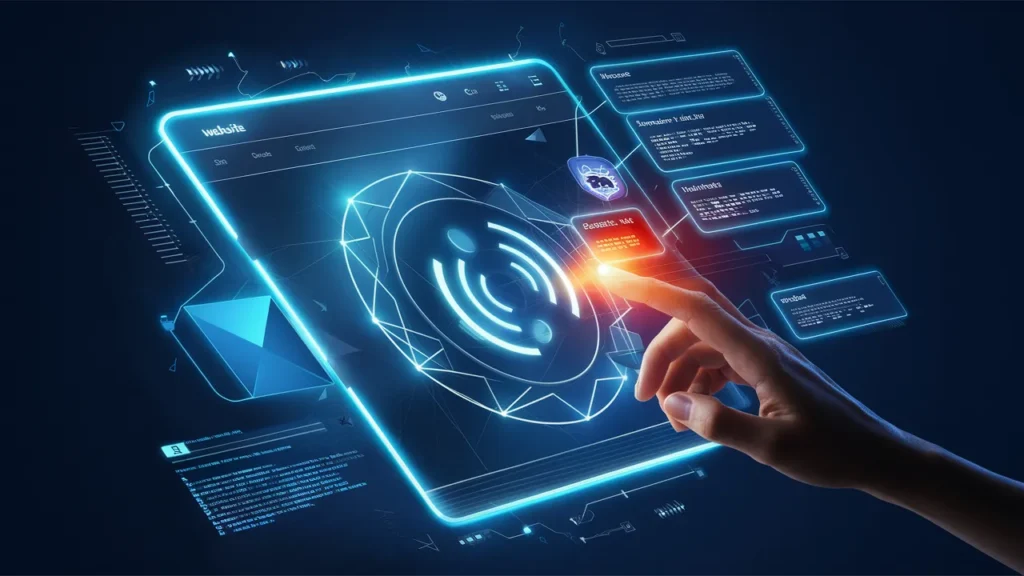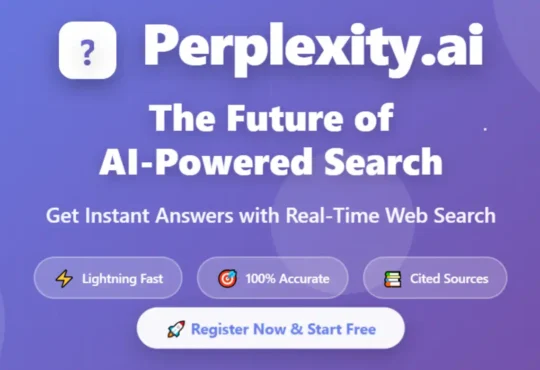Artificial Intelligence is no longer a distant dream confined to science fiction novels. It’s here, actively reshaping how we live, work, and interact with technology. But what lies ahead? The future of AI promises transformations so profound that they’ll redefine the very fabric of human society. From healthcare breakthroughs to personalized education, from autonomous cities to creative collaboration, AI is set to become humanity’s most powerful tool for progress.
The AI Revolution: Where We Stand Today
Before exploring what’s coming, it’s worth acknowledging how far we’ve come. Today’s AI systems can diagnose diseases with remarkable accuracy, generate human-like text and images, drive vehicles, translate languages in real-time, and even assist in scientific discoveries. These achievements represent just the opening chapter of AI’s story.
Machine learning algorithms now process vast datasets in seconds, identifying patterns invisible to human analysts. Natural language processing has evolved to understand context, nuance, and even humor. Computer vision systems recognize objects, faces, and emotions with increasing precision. Yet these impressive capabilities are merely foundations for what’s ahead.
Personalized AI Assistants: Your Digital Twin
The future promises AI assistants that truly understand you. Imagine a digital companion that knows your preferences, anticipates your needs, and learns continuously from your interactions. These advanced assistants won’t just respond to commands—they’ll proactively offer solutions before you even realize you need them.
These personalized AI systems will manage your schedule with unprecedented intelligence, suggesting optimal times for meetings based on your energy patterns and cognitive performance throughout the day. They’ll curate content perfectly aligned with your interests while gently introducing diverse perspectives to prevent information bubbles. Your AI assistant might remind you to call a friend you haven’t spoken to recently or suggest the perfect gift based on deep understanding of both your budget and your relationship dynamics.

Healthcare Revolution: AI as Your Personal Doctor
Healthcare stands on the brink of an AI-driven transformation that will save millions of lives. Future AI systems will enable truly predictive medicine, analyzing your genetic data, lifestyle habits, environmental factors, and real-time biometric information to forecast health issues years before symptoms appear.
Imagine wearing smart devices that continuously monitor hundreds of health markers, with AI algorithms detecting the earliest signs of conditions like cancer, heart disease, or Alzheimer’s when they’re most treatable. AI-powered drug discovery will accelerate dramatically, with systems simulating millions of molecular combinations to develop personalized treatments tailored to your unique genetic makeup.
Mental health support will also be revolutionized. AI counselors available 24/7 will provide evidence-based therapeutic interventions, helping millions who can’t access traditional mental health services. These systems won’t replace human therapists but will democratize access to basic mental health support and flag serious concerns for professional intervention.
Education Reimagined: Learning at the Speed of Thought
The future of education is deeply personal, and AI is the key. Traditional one-size-fits-all classroom models will give way to adaptive learning systems that understand exactly how each student learns best. AI tutors will adjust teaching methods in real-time, presenting concepts through visual, auditory, or kinesthetic approaches based on what works for each individual learner.
Students will explore subjects at their own pace, with AI ensuring they master fundamentals before advancing to complex topics. Language barriers will dissolve as real-time translation becomes seamless and culturally aware. Students in remote villages will access the same quality educational resources as those in prestigious institutions, democratizing knowledge globally.
Perhaps most exciting is AI’s potential to reignite curiosity-driven learning. Instead of memorizing facts, students will engage in Socratic dialogues with AI systems that ask thought-provoking questions, encourage critical thinking, and help them discover knowledge through guided exploration.
The Workplace Transformation: Humans and AI in Harmony
Contrary to dystopian fears of mass unemployment, the future workplace will likely see humans and AI working as collaborative partners, each leveraging their unique strengths. AI will handle repetitive, data-intensive tasks while humans focus on creative problem-solving, emotional intelligence, and strategic thinking.
New job categories will emerge that we can’t yet imagine, just as social media managers and app developers were inconceivable decades ago. AI trainers, ethics officers, and human-AI interaction designers will be in high demand. The key to thriving in this new economy will be adaptability and continuous learning.
Remote work will reach new heights of productivity with AI-powered collaboration tools that transcend language barriers, time zones, and cultural differences. Virtual meetings will feel increasingly natural as AI handles real-time translation, summarization, and even generates action items automatically.
Creative AI: Expanding Human Imagination
The intersection of AI and creativity is perhaps the most fascinating frontier. Future AI systems won’t replace human artists, writers, and musicians—they’ll serve as creative collaborators that expand what’s possible.
Musicians will compose with AI partners that understand music theory deeply while offering unexpected harmonic suggestions. Writers will brainstorm with AI systems that can generate plot alternatives, develop character backstories, or even adopt different writing styles to inspire new directions. Visual artists will use AI to quickly prototype ideas, exploring hundreds of creative variations before settling on their vision.
This creative collaboration will democratize artistic expression. Someone with a story to tell but limited technical skills could partner with AI to produce a professional-quality film. A musician without formal training could compose sophisticated orchestral pieces with AI assistance. The barriers to creative expression will crumble.
Smart Cities and Sustainable Living
Urban environments will become living, breathing entities optimized by AI. Traffic systems will predict congestion before it occurs, dynamically adjusting signals and suggesting alternative routes. Energy grids will balance supply and demand in real-time, integrating renewable sources efficiently and minimizing waste.
AI will be crucial in addressing climate change. Advanced models will optimize everything from agricultural practices to industrial processes, dramatically reducing carbon footprints. Climate prediction systems will become more accurate, helping communities prepare for and mitigate extreme weather events.

Smart homes will anticipate your needs—adjusting temperature before you arrive, ordering groceries when supplies run low, and even detecting maintenance issues before they become problems. Your refrigerator might suggest recipes based on what’s inside and what needs to be used soon, minimizing food waste.
Ethical AI: Building Trust and Transparency
As AI becomes more powerful, ensuring it operates ethically becomes paramount. The future will demand transparent AI systems where decision-making processes are explainable and auditable. Companies and governments will need to implement rigorous testing for bias, fairness, and unintended consequences.
We’ll likely see the emergence of AI governance frameworks, with international cooperation to establish standards and regulations. Digital rights will expand to include protections against AI discrimination and misuse. Organizations will employ AI ethics officers to ensure systems align with human values and societal good.
Privacy-preserving AI techniques like federated learning will allow systems to learn from data without compromising individual privacy. Differential privacy mechanisms will ensure that AI benefits from collective data while protecting personal information.
The Path Forward: Challenges and Opportunities
The journey toward this AI-powered future isn’t without obstacles. Technical challenges remain in developing AI systems that truly understand context, common sense reasoning, and causal relationships. We must address the digital divide to ensure AI’s benefits reach everyone, not just the privileged few.
Workforce transitions will require thoughtful planning, robust retraining programs, and perhaps new social safety nets. Questions about AI rights, consciousness, and personhood will move from philosophical thought experiments to practical policy discussions.
Energy consumption by large AI models poses environmental concerns that must be addressed through more efficient algorithms and sustainable computing infrastructure. We’ll need breakthroughs in AI alignment—ensuring powerful AI systems remain beneficial and aligned with human values as they grow more capable.
Preparing for Tomorrow, Today
How can individuals and organizations prepare for this AI-driven future? The answer lies in cultivating adaptability, critical thinking, and emotional intelligence—skills that complement rather than compete with AI.
Continuous learning becomes essential. Staying curious about emerging technologies, understanding AI’s capabilities and limitations, and developing skills that leverage AI as a tool will be crucial for professional relevance.
Organizations should invest in AI literacy across all levels, not just technical teams. Understanding how AI can augment human capabilities allows companies to identify innovative applications and competitive advantages.
For policymakers, the imperative is to create regulatory frameworks that encourage innovation while protecting citizens from harm. This requires multidisciplinary collaboration between technologists, ethicists, social scientists, and legal experts.
The Human-AI Partnership
Perhaps the most important insight about AI’s future is that it’s not about technology replacing humanity—it’s about technology amplifying human potential. AI excels at processing information, identifying patterns, and making predictions. Humans excel at creativity, empathy, moral reasoning, and understanding nuance.

The future belongs to those who embrace this partnership, using AI to handle computational heavy lifting while focusing human effort on what we do best: imagining new possibilities, connecting with others emotionally, and making value-based decisions that shape the kind of world we want to inhabit.
Conclusion: An Optimistic Vision
The future of AI is being written right now, by researchers in laboratories, entrepreneurs in startups, and policymakers in governments worldwide. While challenges exist, the potential for positive transformation is immense.
We stand at the threshold of an era where diseases are predicted and prevented, where education is perfectly tailored to each learner, where creativity is democratized, and where human potential is amplified beyond current imagination. AI won’t solve every problem or create a utopia, but thoughtfully developed and ethically deployed, it can help us tackle humanity’s greatest challenges.
The question isn’t whether AI will transform our world—it already is. The question is how we’ll shape that transformation to reflect our highest values and aspirations. That responsibility belongs to all of us, and the choices we make today will echo through generations to come.
The future of AI is not predetermined. It’s a canvas waiting for us to paint our vision of tomorrow. With wisdom, collaboration, and commitment to human flourishing, we can ensure that AI’s future is bright, inclusive, and beneficial for all.


